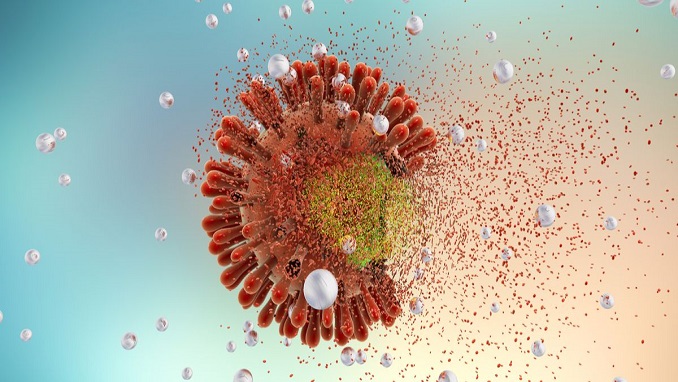Moderna announced the launch of a clinical trial of an HIV vaccine using the same mRNA technology that has allowed for quick and effective development of COVID-19 vaccines—just as researchers in the Netherlands announced the discovery of a new, more virulent strain of HIV.
While it is possible to treat people infected with HIV using antiretroviral drugs, which are said to control even the new strain of virus, a vaccine that prevents the disease could eventually mean no one is infected.
Vaccines using messenger RNA (mRNA), teach the body’s cells how to make proteins that trigger immune responses to specific proteins found in the virus, according to MedilinePlus, a National Institutes of Health website.
The effectiveness of Moderna’s mRNA technology has been shown with both the Pfizer and Moderna vaccines against COVID-19 and was confirmed again last week when the FDA fully approved the Moderna COVID-19 vaccine. Development with mRNA is also faster than other types of vaccine development.
“Given the speed with which mRNA vaccines can be produced, this platform offers a more nimble and responsive approach to vaccine design and testing, potentially shaving off years from typical vaccine development timelines,” Moderna said in a statement announcing the trial.
‘May overcome shortcomings’
“Despite nearly four decades of effort by the global research community, an effective vaccine to prevent HIV remains an elusive goal,” NIAID Director Dr. Anthony S. Fauci said after publishing a study of this new vaccine in December. “This experimental mRNA vaccine combines several features that may overcome shortcomings of other experimental HIV vaccines and thus represents a promising approach.”
The clinical trial, titled IAVI G002, will test whether “HIV immunogens delivered by messenger RNA (mRNA) can induce specific classes of B-cell (white blood cell) responses and guide their early maturation toward broadly neutralizing antibody (bnAb) development,” Moderna’s statement said. “The induction of bnAbs is widely considered to be a goal of HIV vaccination.”
The trial is designed to study both the safety and efficacy of the vaccine and follow 56 HIV-negative adult participants: 48 of the participants will receive at least one dose of the primary vaccine, 32 will also receive the booster and the remaining eight will only get the boost immunogen, Moderna explained.
The new HIV vaccine is being developed through a joint effort of Moderna, the International AIDS Vaccine Initiative (IAVI), and the Bill and Melinda Gates Foundation.
Super-mutant HIV strain discovered
The need for an HIV vaccine seems all the more urgent in light of the University of Oxford Big Data Institute’s discovery of a new highly transmissible and dangerous HIV strain.
Compared to other HIV variants, as results published in the journal Science show, the individuals with the new “virulent subtype B” (VB) strain variant had 3.5 to 5.5 times higher viral load (the level of the virus in the blood) and have also demonstrated an increased risk of transmitting the virus to other people.
The virus also apparently damages the body more quickly. The Oxford University article said: “The rate of CD4 cell decline (the hallmark of immune system damage by HIV) occurred twice as fast in individuals with the VB variant, placing them at risk of developing AIDS much more rapidly.” As the article explains, it is critical that individuals are diagnosed early and start treatment as soon as possible, to prevent the more rapid deterioration of the immune system’s defenses.




